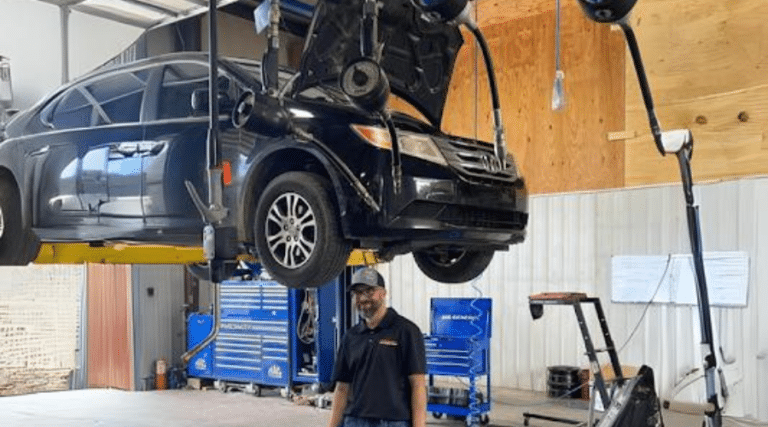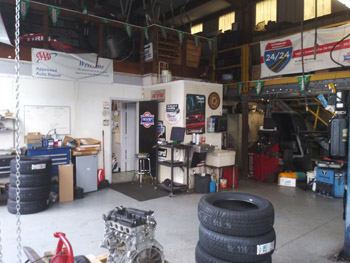All Categories
Featured

[/image]

When it comes to car maintenance, the brakes are perhaps the most crucial system for guaranteeing your security. Normal brake examinations are crucial to keeping your braking system in top condition.
- Why Brake Assessments Are Critical. Brakes are created to put on down with time, but without regular evaluations, you might not observe when they become much less effective. A malfunctioning brake system can cause major accidents, raised fixing prices, and even the requirement to replace other car elements.
Brake assessments not only help you catch potential concerns prior to they intensify, but they likewise enable far better stopping performance, increased car lifespan, and improved security.
- Identifying Caution Indications for Brake Problems. While routine inspections are very important, you don't need to wait until your cars and truck's following browse through to the mechanic. See for these indication that might indicate it's time for an inspection:
Uncommon Noises: A shrill screech or grinding audio when applying the brakes often indicates that the brake pads are worn down or harmed. Soft or Mushy Brake Pedal: If the brake pedal feels soft or spongy when pushed, there may be air or wetness in the brake lines, or the brake liquid might be low. Drawing to One Side: If the car pulls to one side while stopping, it can indicate irregular brake pad wear or a hydraulic issue in the brake system. Vibration in the Steering Wheel or Pedal: If you experience vibration or pulsation when braking, it may suggest deformed blades or unequal brake pad wear. Enhanced Stopping Distance: If it takes longer than normal to bring your cars and truck to a quit, it might be time to check the brake pads, fluid levels, or blades. If you notice any one of these indications, it's ideal to have your brakes inspected immediately by a professional.
- Key Elements Checked During a Brake Evaluation. During a brake evaluation, a licensed auto mechanic will check out numerous essential components of the brake system to ensure they're functioning appropriately. Several of one of the most integral parts to evaluate include:
Brake Pads: These are the friction material that presses against the brake rotor to reduce down the automobile. Gradually, the brake pads put on down and need changing. Brake Rotors: Rotors are the metal discs that the brake pads clamp down on. They must be smooth and without deep grooves or fractures. Brake Fluid: The brake fluid moves the force from the pedal to the brakes. Reduced fluid levels or old, infected fluid can lead to poor braking efficiency. Brake Lines: Brake lines bring fluid from the master cyndrical tube to the brake elements. They need to be looked for leakages, fractures, or damage. Brake Calipers: These clamp the brake pads onto the rotors. They need to be in excellent working order and free of leakages. Frequently examining these elements ensures your braking system functions smoothly and helps you stay clear of hazardous driving situations.
- How Typically Should You Obtain Your Brakes Examined? The frequency of brake inspections depends upon your driving routines and the sort of automobile you possess. As a general standard, it's advised to evaluate your brakes at the very least annually or every 12,000 miles. If you drive in heavy traffic, regularly bring heavy tons, or drive on sloping surface, even more frequent inspections might be needed.
It's likewise an excellent concept to have your brakes evaluated if you notice any of the indication stated previously, as this can avoid more serious concerns.
- The Price of Neglecting Brake Inspections. Disregarding normal brake evaluations can cause major consequences. Used brake pads, harmed rotors, or low brake liquid can cause your braking system to fail when you require it most. Along with the security threats, neglecting brake maintenance can result in expensive fixings in the future.
For example, if the brake pads are not changed in time, the damage can include the rotors, resulting in the demand for blades replacement-- an expensive fixing. By scheduling regular brake inspections, you can avoid these expensive repair services and keep your stopping system in excellent condition for longer.

- What Takes place During a Brake Examination? A specialist auto mechanic will perform a thorough evaluation of your vehicle's stopping system, consisting of looking for the adhering to:
Brake Pad Density: Brake pads require to be replaced when they have used down to a certain thickness. Blades Problem: The technician will certainly inspect the rotors for indications of wear, bending, or scoring. Brake Liquid Level: Low brake liquid can influence braking efficiency. The auto mechanic will certainly inspect the fluid level and restore it if necessary. Brake Line Integrity: The brake lines will be inspected for any leakages or fractures that can jeopardize the brake system. When the inspection is total, the auto mechanic will certainly educate you of any needed repairs or replacements.
Verdict: Stay Safe with Normal Brake Inspections. Your brakes are necessary to keeping you and your passengers safe on the roadway, so regular brake assessments ought to never ever be neglected. By taking note of indication, organizing periodic brake checks, and dealing with problems quickly, you can ensure that your brakes are always in top shape.
Don't wait until your brakes fall short-- stay proactive concerning brake maintenance. A small investment in brake evaluations today can save you from expensive fixings and harmful scenarios in the future.
Latest Posts
Explore Montclare Auto Repair’s Premier Car Care Solutions and Why Drivers Choose Them
Explore Best Auto Repair Care in Chicago – Drive with Confidence
Reputable Industrial Roofing Services by Weathercraft